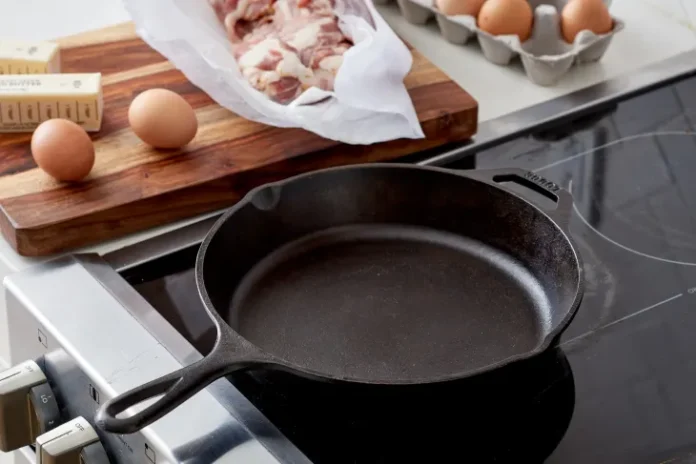A cast iron skillet is one of the most beloved tools in any kitchen. Known for its durability, excellent heat retention, and ability to create a beautiful sear, it’s a favorite for everything from steaks to cornbread. However, despite its versatility, there are certain foods that are better cooked elsewhere. Here’s a look at what you should avoid making in your cast iron pan — and why.
1. Acidic Foods (Like Tomatoes and Citrus-Based Sauces)
Tomatoes, lemon juice, vinegar, and other acidic ingredients can react with the iron. This may strip away your pan’s seasoning and give the food a slightly metallic taste. A quick simmer might be fine, but long cooking times for tomato sauce or lemon chicken? Better to use stainless steel or enameled cookware.
2. Delicate Fish
Fish like tilapia or flounder can easily break apart in a heavy cast iron pan. Plus, these lighter fish tend to absorb flavors. If your pan still carries traces of garlic or spices from past meals, your delicate fillet might end up tasting like last week’s stir-fry.
3. Sticky or Sugary Foods
Dishes like caramel sauce, sugary glazes, or even pancakes with lots of syrup can cause problems. Sugar tends to stick, making cleanup difficult and possibly damaging your seasoning. A nonstick or stainless-steel pan is better for these sweet endeavors.
4. Eggs (Especially in a Newer Skillet)
Well-seasoned cast iron pans can handle eggs, but if your skillet is newer or the seasoning isn’t well established, eggs will likely stick and turn into a scrambled mess. Until your pan is nicely slick from repeated use, cook eggs in a nonstick pan.
5. Strongly Odorous Foods
Cooking foods with strong odors — like certain fish or pungent spices — can cause your skillet to retain these scents. The next time you cook something milder, the flavors may mingle in ways you don’t want.
6. Long Simmering Dishes
While cast iron can hold heat beautifully, it’s generally not ideal for recipes that need to simmer for hours, especially with liquid. This can wear down the seasoning and invite rust if the pan isn’t dried and oiled immediately after cleaning.
Final Tips
A well-cared-for cast iron skillet can last generations. Avoiding these foods (or at least using caution with them) will help preserve your pan’s seasoning and keep it performing at its best. Always clean your skillet promptly, dry it thoroughly, and lightly oil it after use to maintain that beautiful nonstick surface.
